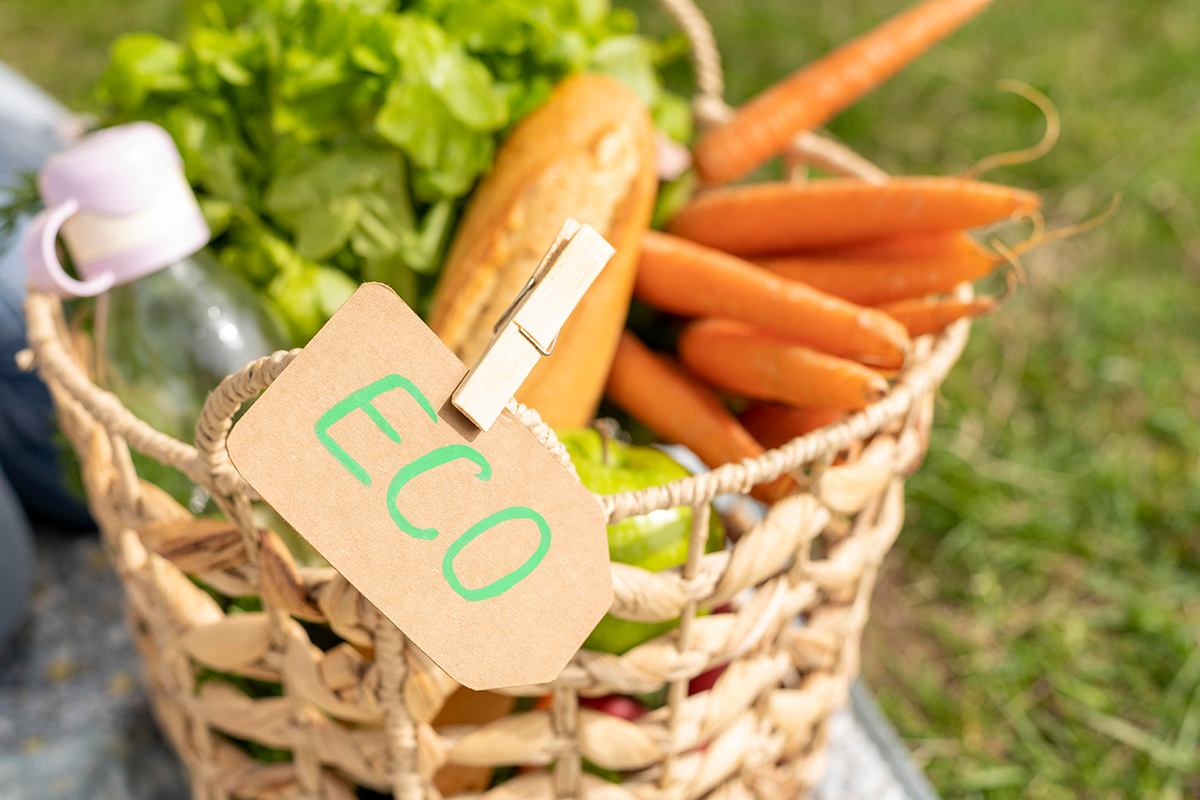Many people choose organic products because of their health and environmental benefits, but it is important to consider several factors before buying so that you don’t make a mistake and overpay. In this article, we’ll give advice on choosing organic products and break down what you need to know before making a buying decision.
How to distinguish genuine organic products?
When buying organic products, the first thing you need to do is to make sure they are authentic. Organic products are different from conventional products in that they are produced without the use of chemical fertilisers, pesticides, herbicides and genetically modified organisms. To be sure that you are looking at a real organic product, you should look for special certification marks on the packaging.
Inscriptions and certification marks
Don’t rely solely on labels like ‘organic’ or ‘bio’ – these are marketing terms that don’t always mean the product is organic. Be sure to check if there are certification marks on the packaging to confirm that the product meets organic farming standards.
If you buy food at a market, ask the seller how the vegetables, fruit or meat was grown. Reliable farmers are usually willing to detail their methods.
Seasonality and local produce
One of the best ways to get quality organic produce is to buy seasonal produce produced in your area. Seasonal produce is usually not only tastier, but also healthier because it ripens naturally without the use of growth stimulants.
Seasonal produce at farmers’ markets
Local farmers often offer fresh and organic produce, especially if they operate under organic standards. Find out what produce is considered seasonal for your area and try to buy it during the peak of ripening. For example, this could be berries and tomatoes in summer and apples and pumpkins in autumn. Visit farmers’ markets where you can often find fresh organic vegetables, fruits and meats that have not been transported for long periods of time.
Compare prices and plan your purchases
Organic products tend to be more expensive than conventional products because of the more labour-intensive process of production and certification. However, that doesn’t mean they are always worth choosing. Some produce, such as bananas, avocados or citrus fruits, have natural protection in the form of a thick peel that minimises pesticides on the fruit itself. In these cases, you don’t have to overpay for organic versions.
Conventional and organic products
Make a list of the foods you definitely want to buy organic and those you can save money on. For example, choose organic berries or leafy vegetables because they are more susceptible to pesticides. Bananas or avocados, on the other hand, can be bought conventional.
It’s also a good idea to plan your shopping a few days in advance to avoid food spoilage. Organic items often have a shorter shelf life due to the lack of preservatives, so it is important to consume them in a timely manner.
Additional tips for buying organic produce
Try to incorporate both organic and conventional foods into your diet, choosing those that are most rich in nutrients. For example, organic eggs and meat can be a good source of quality protein, and organic fruit and vegetables can provide vitamins and antioxidants.
Check local shops and markets
If you’re not sure where to find good organic produce, look for speciality shops or farmers’ markets in your area. You can often find a wide variety of quality products at these places.
Do not hesitate to ask questions
If you have any doubts about the quality of organic products, ask questions of the sellers or producers. Reliable sellers are always willing to provide information about the origin and production methods of the products.
Food storage
Be sure to learn how to properly store different types of foods so they stay fresh longer. For example, some fruits and vegetables are best stored in the refrigerator and others at room temperature.
Remember that organic produce does not have to be the only source of nutrients in your diet. Conventional foods, as long as they are fresh and of good quality, can also provide health benefits.


